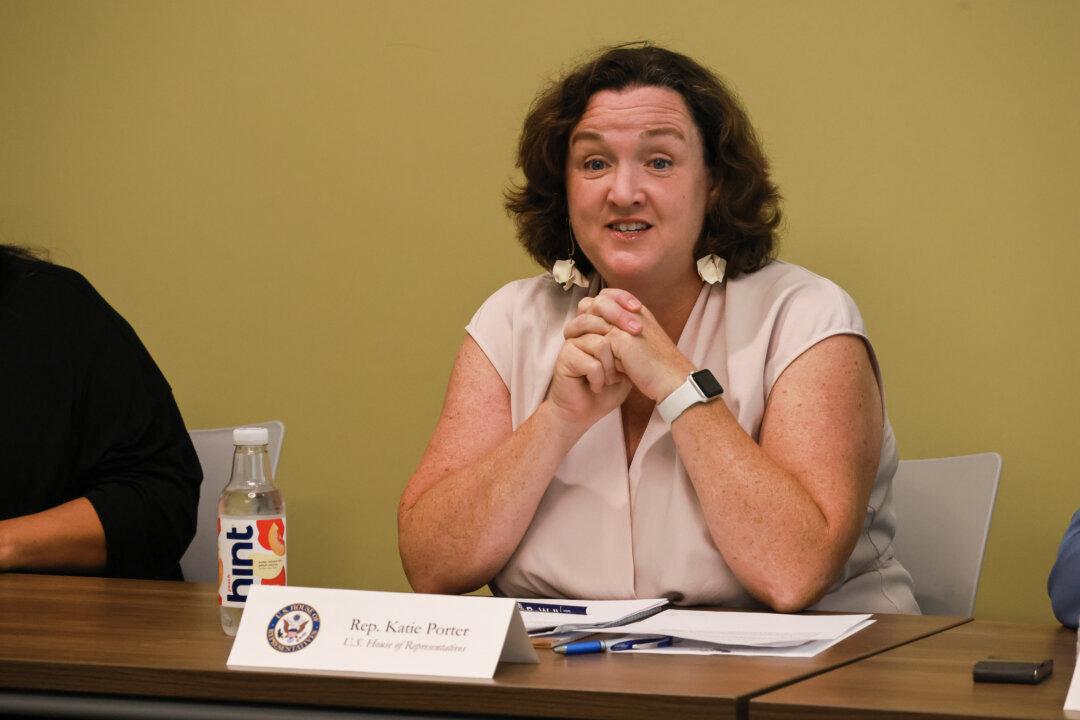ORANGE, Calif.—House Rep. Katie Porter blasted insurance companies during a roundtable discussion Aug. 31, during which community nonprofits and healthcare experts discussed patient struggles to access treatment.
The two-hour roundtable, at Be Well OC’s Orange campus, was held to gain input from healthcare experts and community leaders amid Ms. Porter’s latest bid to “hold health insurance companies accountable” via the federal Mental Health Parity Act of 2006, which requires private medical insurance companies to cover a variety of mental and addiction treatments they may otherwise deny, such as therapy, follow-up care, and prescription medication.




